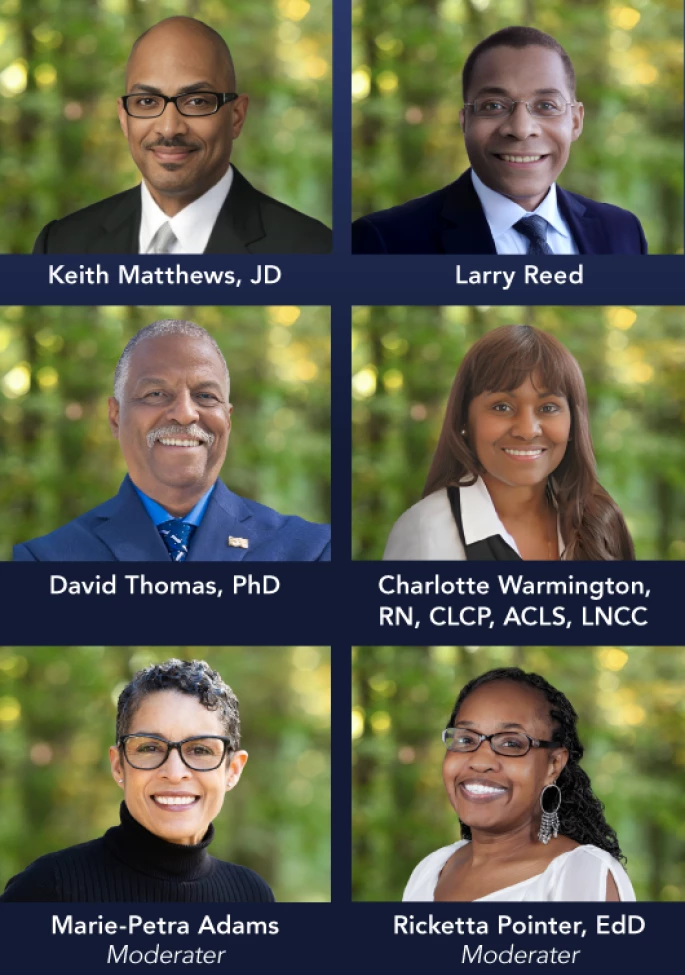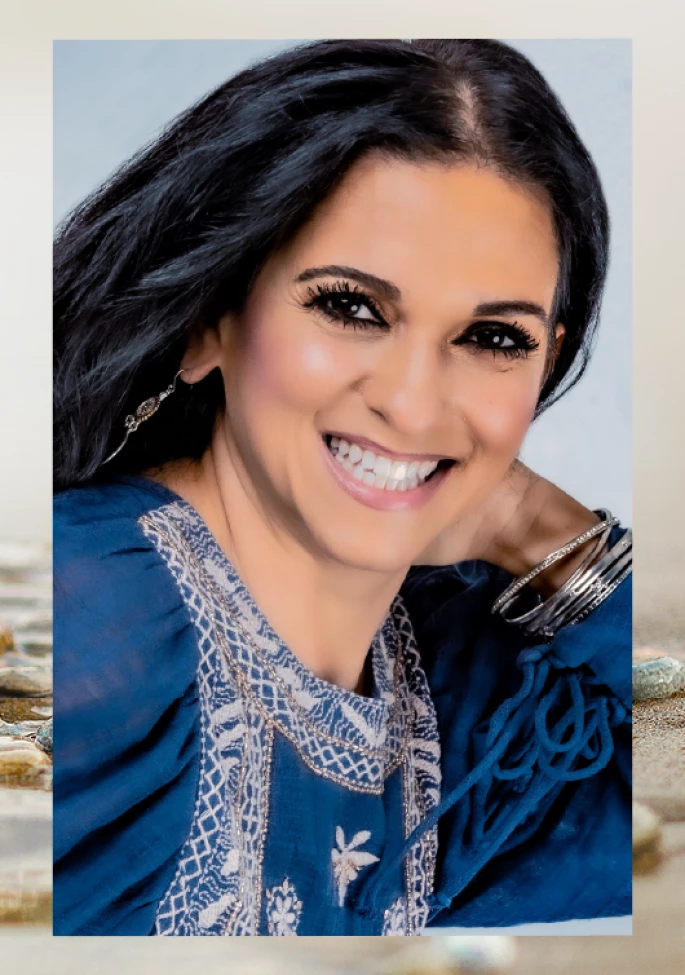Mary Collings, CD is the owner of a spine and sports medicine franchise and the treating chiropractor for the NBA’s Dallas Mavericks and NHL’s Dallas Stars, as well as a member of the IMS | Juris Medicus medical expert panel.
Melissa Gomez, PhD, IMS Senior Jury Consulting Advisor and MMG Jury Consulting founder, is an expert in the psychology of learning, behavior, and decision-making, an acclaimed author, and a sought-after guest by major news networks.
Judy Ho, PhD is a triple board-certified and licensed clinical and forensic neuropsychologist specializing in assessments and expert witness work, in addition to being an accomplished author and appearing as an expert psychologist on national media.
Gabriela Orsak, PhD, Associate Director of Statistical Consulting at IMS | Analytic Focus, is an expert witness and author whose areas of expertise include trademarks, false advertising, and consumer confusion in the banking, finance, and e-commerce sectors.
Merrie Jo Pitera, PhD is the Senior Jury Consulting & Strategy Advisor at IMS and former CEO of Litigation Insights, as well as an author and expert speaker on psychology, communication, jury behavior, and witness preparation.
Our Insightful Discussion
Drs. Mary Collings, Melissa Gomez, Judy Ho, Gabriela Orsak, and Merrie Jo Pitera were truly inspiring as they shared their experiences as women in the legal industry and as specialists in their fields. Moderated by IMS DEIB Committee Members Kyndra Clawson and Lisa Lee, the thought-provoking discussion included these questions:
- What needs to happen to ensure an inclusive environment for women in the legal industry?
- What advice would you give to women beginning their careers in the field?
- How do you find work/life balance when you are involved in multiple roles: mother, expert, author, etc.?
- How have you dealt with stereotypes or biases because of your gender?
- Since women are still experiencing a wage gap, what advice can you give about advocating for yourself in the workplace?
While addressing these topics, our guests provided valuable guidance on overcoming bias, fostering professional relationships, avoiding burnout, knowing your worth, and supporting inclusion.
Gender Bias
Dr. Pitera has experienced her share of bias after three decades in the legal industry. She reminded us that we cannot change things if we ignore them, and that women are not asking for preferential treatment—just a level playing field and mutual respect. This means we must support one another instead of competing. As Dr. Ho said, “We’re all in this big universe, and we’re a small part, together.”
Dr. Gomez shared a story about outside counsel refusing to recognize her PhD while he referred to a male jury consultant as “Doctor.” She acknowledged that you cannot always change people’s minds, but you can stand your ground and stand on the shoulders of those who support you. You can also let your work speak for itself. As a specialist in witness preparation, Dr. Pitera agreed that keeping your composure is key. Dr. Ho did just that during a deposition when the male attorney blatantly ignored her title and used her first name despite multiple corrections.
Dr. Collings was one of six women in her class of 75 in chiropractic school. Despite being encouraged to take an associate role, she opened her own practice (as did three of her female classmates). A sports medicine specialist for three decades, Dr. Collings has seen more and more females entering the field and has noticed a shift toward the industry “wanting” to include women instead of “having” to.
Female Mentorship
Dr. Pitera and Dr. Ho mentioned the impact of mentors on their entry into a male-dominated profession, while both Dr. Orsak and Dr. Collings said they wish they had known about expert witness work years prior. This illustrates a point that Dr. Ho made about female mentorship and the importance of ensuring the next generation has a seat at the table. Knowledge generates opportunity. Similarly, Dr. Gomez spoke about a responsibility to give others the chance to fly or fail—but most of all, to learn.
Our panelists agreed that cultivating relationships is key to personal and professional success, with Dr. Pitera reminding us that “we lift each other up.” Dr. Ho encouraged everyone to “find your community” because having meaningful personal relationships in our professional lives leads to a better balance.
Work/Life Balance
As with our other guests, Dr. Pitera sacrificed her personal life early on in pursuit of professional success—working hard to be seen, heard, and taken seriously. She said she can now be “a little more human” and that finding work/life balance has made her a more well-rounded person. Dr. Collings joined her in appreciating the ability to step back and carve out time for self-care, which is critical to avoid burnout.
Our guests shared that part of the problem in achieving this balance comes from the unrealistic expectations placed on women: the ability to “do it all” and “be it all” to reach the top. As Dr. Gomez said, choices and sacrifices must be made, especially as a working mother. Dr. Ho called it “toxic” to think that women can have it all, or at least that you can have it at the same time. You have to make sacrifices and conscious decisions to adjust your priorities, which includes prioritizing yourself.
Dr. Ho also explained the different categories of self-care—physical, emotional, practical, intellectual, spiritual, and social—and advised us to make time for one self-care activity every day, even if only for 10 minutes. It can be easy to get overwhelmed. The key is intention and consistency. Speaking of self-care, practicing mindfulness is a great way to avoid burnout. Dr. Collings encourages her patients to learn to be still and in their own minds; in fact, she prescribes mandatory phone-free minutes at the end of each session. Similarly, Dr. Ho advised us to look inward, lean into our values, and allow ourselves to be identified by something more than what we can get done in a single day.
Pay Imbalance
Dr. Ho said she was shocked at the results of a university salary study that she conducted and further work was needed to identify the reasons for the discrepancies in pay by gender. Are men offered higher wages up front? Do they negotiate salaries more effectively or request raises more frequently?
Along these same lines, Dr. Gomez talked about how confidence does not come from acting “like a man” or “like a woman” but from being unapologetically and authentically yourself. She encouraged women to be armed with the value of their contributions when advocating for salary increases. Starting the conversation is the first step.
Dr. Pitera discussed the importance of being part of that conversation when you disagree with how someone is being treated. Regardless of gender, we should advocate for others when we see behavior that is just not “right”. And when not right, we should be willing to find something that is. Dr. Orsak cautioned, “Be careful about what company or organization you join—do your homework.” Dr. Gomez joined in, saying, “If it doesn’t align with your values and you can’t be your authentic self, try different things until you find that spot. Just be aware of your boundaries.”
Industry Inclusion
Our guests have seen firsthand the shift in the perception and roles of women in the legal profession, but they also know we must keep the conversation going. Dr. Pitera shared, “It’s about education.” However, as Dr. Gomez said, there is no easy path through a male-dominated field—even with the progress made. That is why we must take care of ourselves and each other while confronting biases and changing opinions about what women can achieve.
“You will be challenged in this industry. Be prepared and be present.” –Dr. Orsak
“We can do this just as much as anyone else.” –Dr. Collings
Extending Our Gratitude
The IMS team is sincerely grateful to our expert guests for generously giving us their time, spirit, and advice. We would also like to thank our DEIB Committee members for their work in coordinating this empowering event. As a company, IMS is dedicated to fostering diversity, equity, inclusion, and belonging, and we are grateful to provide a space in which to have these important conversations. Together, we win.








